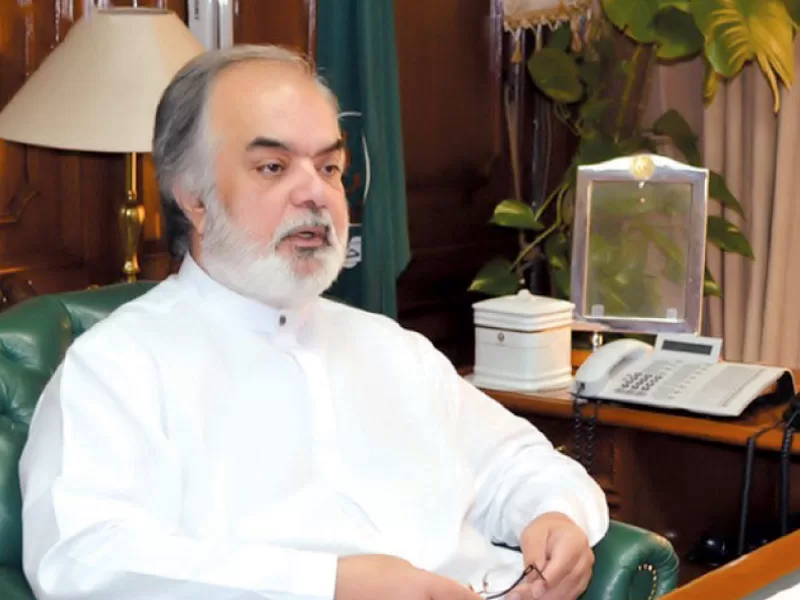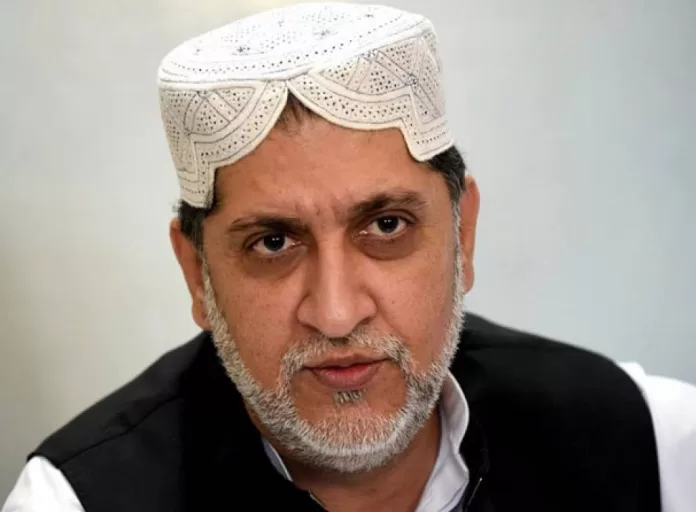Commitment by all political parties of Baluchistan about their participation in the forthcoming general elections is rather refreshing. Chief Election Commission’s recent visit to Quetta was quite reassuring. He took various steps to address the difficulties being faced by prospective candidates from Baluchistan. Caretaker Chief Minister of Baluchistan has also resolved to make all efforts to ensure peaceful environment for the election. Pakistan currently faces extraordinary challenges of law and order. The decision to go ahead for the elections was indeed a bold one and it certainly represents the national aspirations.
Now the federal and provincial governments have to put in joint effort to ensure that all political parties and their voters feel safe enough to participate in the elections. With a caretaker Prime Minister from Baluchistan overseeing the political transition at national level and most of the political elements of Baluchistan bracing-up for participation in national and provincial elections, on can safely presume that the restive province is on its way to join the national mainstream. At the same time one must not underestimate that prevailing law and order situation presents an encouraging environment to the players who wish to disrupt the electoral process in Baluchistan; they would certainly put in their utmost effort to create a pretext for achieving that end.
People of Baluchistan, like other provinces, aspire to vote on May 11 to join the political process. In 2008, major political parties in Baluchistan had boycotted the general elections. Nationalist parties have realised that their decision of electoral boycott has done no good to the people of Baluchistan. They have now made a prudent choice to do the politics of inclusiveness. However, the subversive effort by the marginalised separatist entities is likely to continue. On March 12, 2013, armed activists of the Baluch Liberation Army (BLA) gunned down Muhammad Ziaullah, District Election Commissioner of Quetta. The BLA was forthright in claiming the responsibility: “We will not let Pakistan hold elections in Baluchistan,” warned the outfit’s spokesperson. Two more militant Baluch entities, the Baluch Liberation Front (BLF) and the Baluch Republican Army (BRA) have also threatened to disrupt the elections. Political parties fear deadly attacks on their election rallies, candidates and voters. Baluchistan certainly remains an area of primary interest for the observers of 2013 electoral processes.
Supreme Court as well as federal and provincial governments have been taking serious notice of the aggravated law and order situation of Baluchistan, particularly with reference to the disappeared people. Last week, the judicial commission constituted for the recovery of the missing persons has submitted its progress report in the Supreme Court of Pakistan. Commission claims that it has traced 378 missing persons’ cases while 633 are still pending. In Baluchistan, 59 cases were concluded while 48 are still remaining. This commission has done a commendable job by demystifying the missing persons’ issue, especially in the context of Baluchistan. It will be in the fitness of things if the commission handles all Baluchistan related cases on priority and tries to finalize them well before the election.
Sardar Akhtar Mengal, president of the Baluchistan National Party (BNP), has recently opined that discontent amongst the Baluch populace was caused by unabated illegal arrest, torture and murder of the political leaders for which Pakistan’s security forces are blamed. If these extra-judicial killings do not stop, he warned, elections would be too difficult to hold. Akhtar Mengal is rightly concerned that there has been no improvement in the Baluchistan situation; bloodshed continues in the province and the situation is not improving. Indeed Baluchistan is still passing through a serious crisis. Mengal has reaffirmed that his party believes in democracy. His return from self exile and participation in elections is of much significance with regard to jump-starting the political process in Baluchistan.

However, reasons for the prevailing situation in Baluchistan go far beyond Akhtar Mengal’s perspective. Baluchistan has been the hub of multi-dimensional ethno-sectarian strife for the last one decade or so. Vacuum created by the government’s lack of capacity to manage the unrest has facilitated the entry of numerous entities which have gained a reasonable regulatory control over the dynamics of ongoing socio-political divergence. Chilling waves of violence unleashed by sectarian groups, ethnic nationalists, armed wings of political parties and death squads believed to be funded by the foreign state and non-state actors are just some of the string-pullers which have plunged Baluchistan to its current sorry state of affairs.
Baluchistan’s is a multiethnic province, with almost equal Baluch and Pashtun population alongside other minority groups. Population of Baluchistan is 8 million out of which the Baluch and Brahvis are 4 million, the Pathans 3.5 million and settlers 0.5 million. Within Baluch dominated areas, Sindhi-Baluch community residing in Sibi and Jacobabad areas are peaceful and friendly. Likewise, Pushtuns do not harbour separatist tendencies. Shia Hazaras are strong proponents of Pakistan’s territorial integrity. Majority of the people living along the Makran coast are also peace loving people. Separatist elements are weak divided and marred by inter as well as intra- tribe rivalries. Personal rifts and jealousies have led to creation of cracks and differences between Baluchistan Liberation Army (BLA) and United Baluchistan Army (UBA). These fissures are likely to grow in days to come.
Baluchistan does not belong to the Baluch population alone. Baluch being more volatile and outspoken have been able to project their victimhood and attract foreign sponsors. The runaway scions of three tribal chieftains are trying, in vain, to stir up separatist tendencies. This misguided youth hardly has any standing amongst the great majority of Baluch who are loyal to the concept of Pakistan. Residents of other ethnic origin are playing important role towards restoration of stability in the province; however, they need to assert themselves politically so that real demographic face of the province is duly represented and acknowledged.
After ending the military operation in 2008, the provincial government and political leadership failed to fill the void; unfortunately they chose not to take decisive stance against the trouble makers, rather preferred a strategy of appeasement. Under these circumstances credit goes to the national tier of political and military leadership for adopting a shrewd strategy for arresting the situation and indeed reversing it, both at domestic and international levels.
Successful conduct of elections in Baluchistan shall indeed be a watershed. However, the political gains emanating out of a credible electoral process will need careful handling. First priority should be to take visible steps, and indeed launch a protracted campaign to dispel the widespread perception of deprivation and exploitation. The Baluch people believe that they do not benefit from their own mineral wealth, such as gas, gold and copper, nor are they provided any representation in the country’s civil, armed and foreign services. A comprehensive compensatory and rehabilitation package should follow, focused at making the common citizen of Baluchistan feel at home. This would need concerted plan of action to bridge the gap between perceptions and reality.




